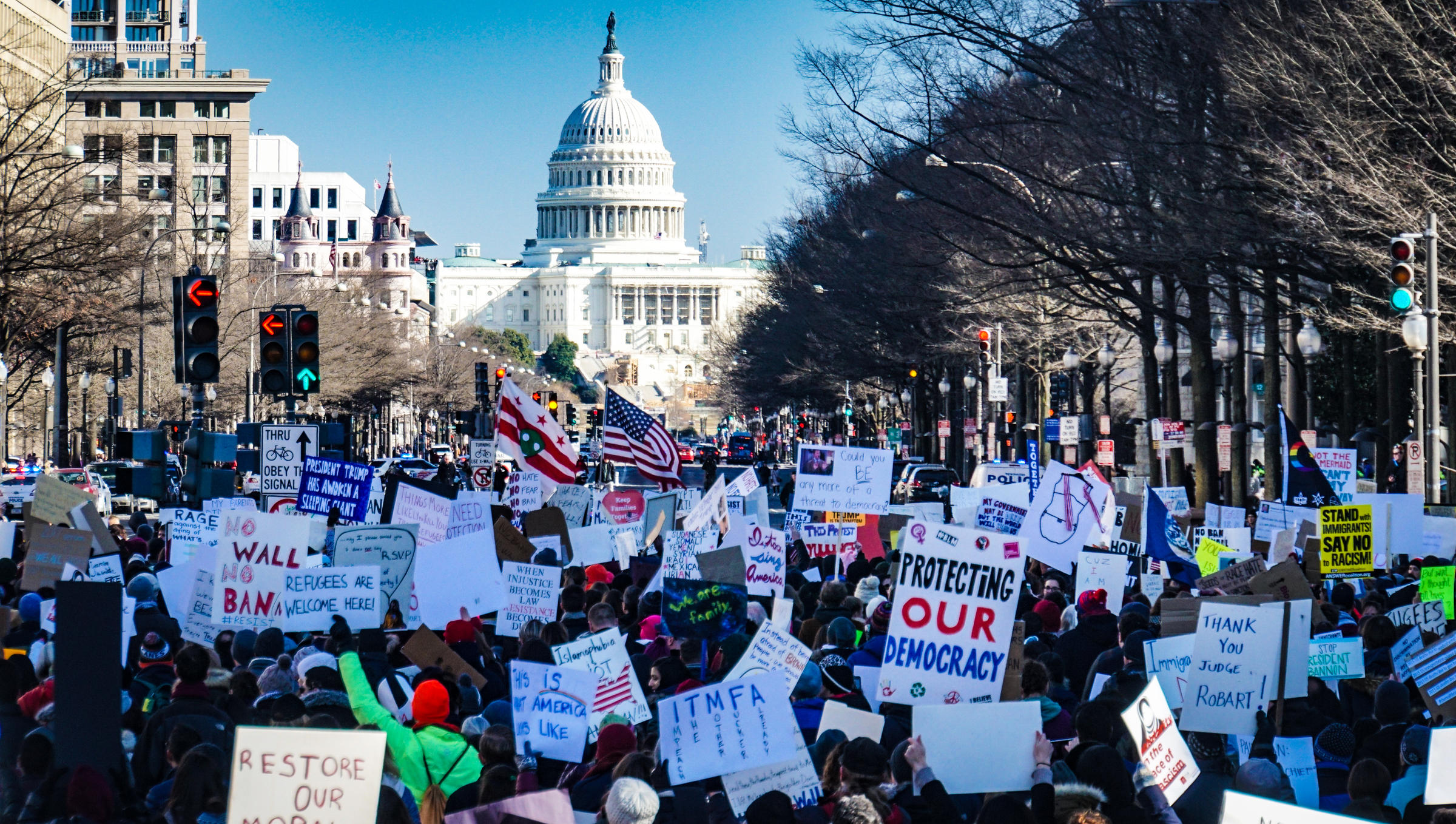OPINION: Divided America should work toward unity

President Donald Trump’s campaign requested a recount of Georgia’s votes Nov. 21 as part of its ongoing legal battle against alleged voter fraud since votes began to be counted Nov. 3. His inflammatory actions and statements regarding voter fraud have deepened a growing rift in American society.
Trump’s rhetoric has led his supporters to protest across the country for his re-election, and some of these protests have not ended peacefully.
Protests in D.C. on Nov. 14 in favor of Trump’s re-election took a violent turn when anti-Trump protesters showed up, resulting in injury to two police officers and arrests of 20 participants, according to The Washington Post. Among the pro-Trump protesters were some who identified themselves as being part of the Proud Boys, which, according to the FBI, is a far-right, extremist group with ties to white nationalism.
While this event was a result of the president’s inciting rhetoric, situations like D.C. are no anomaly. This violence was merely a result of years of political polarization that the U.S. continues to face.
Today’s polarization is driven by years of division over controversial social issues, the reliance on the internet and social media for news, and Trump’s dividing rhetoric and controversial tweets.
USF political science professor J. Edwin Benton said he believes America has been divided way before today’s current polarization.
“By the mid-1960s is where I would pinpoint the beginning of what we see today as a very exaggerated political polarization,” Benton said in an interview with The Oracle. “The reason for this being ignited, I will attribute to three controversial issues that divided us as a people and a nation.”
The first reason behind the divide was the civil rights movement, which divided Black and white America. The second issue, Benton said, was the war in Vietnam, during which Americans were torn between fighting the war and withdrawing troops. The third during which a myriad of social issues like abortion and LGBTQ rights further polarized the American public through the rest of 20th century.
By the 1990s, Benton said these issues made it incredibly difficult for members of opposing parties to make concessions.
“Americans lost a necessity of politics, the art of compromise.”
As of November, 85% of U.S. adults think that supporters of President-elect Joe Biden and Trump supporters disagree “on basic facts,” according to a survey conducted by the Pew Research Center right before the election.
A survey conducted with about 3,000 Americans by the Pew Research Center found that roughly eight in 10 registered voters from both parties believed that differences with the other side were about “core American values” rather than areas that could be reconcilable and negotiable. Both party supporters disagree not only on policies but also on basic core beliefs they think Americans should hold.
Social media could be to blame for why Americans believe they don’t even share the same set of values and facts. We rely on our social media news bubbles for information usually fine-tuned to fit our beliefs. The constant bombardment of biased news creates different narratives for both ends of the spectrum.
Another reason behind growing division is Trump’s hateful language on Twitter and during speeches.
Trump has doubted the authenticity of the democratic process even when it benefited him. After winning the 2016 elections, he still claimed there were illegal votes against him.
“In addition to winning the Electoral College in a landslide, I won the popular vote if you deduct the millions of people who voted illegally,” Trump tweeted Nov. 27.
Another controversial situation arose when Black Lives Matter (BLM) protests were held earlier this year to rally against police brutality and systemic racism. Rather than try to appease protesters and understand their frustrations, Trump tweeted at New York’s mayor when advocates painted “Black Lives Matter” on Fifth Avenue in front of Trump Tower.
“Won’t let [BLM], this symbol of hate be affixed to New York’s greatest street,” Trump tweeted.
Unfortunately, these tweets are part of countless others that share the same rhetoric of hatred and animosity, which can eventually lead to violence like what occurred in D.C. In his survey of 156 countries from 2000 to 2017, Penn State political science professor James A. Piazza found that countries where politicians “never” or “rarely” used hate speech had fewer incidents of domestic terrorism compared to countries that did.
On a positive note, as of Nov. 23, Trump and his legal team had 24 of their 36 voter fraud lawsuits in six states thrown out, denied, settled or withdrawn, according to NBC News. It’s looking like Biden will move into the Oval Office in January. But in order to decrease current polarization, there needs to be better, more unifying rhetoric from the federal government, more focus on local government matters and a collective effort to listen to opposing viewpoints.
The first solution requires Biden to choose his words carefully and address all Americans when he speaks to the public. He should avoid hateful, manipulative speeches and aim to unite the public through both his words and actions.
Rather than pushing only for his party’s goals, Biden needs to restore the “art of compromise” Benton feels has been abandoned in this country.
In his acceptance speech Nov. 8, Biden already started taking steps toward decreasing polarization between parties.
“It’s a decision, a choice we make [to work with each other],” Biden said. “And if we can decide not to cooperate, then we can decide to cooperate.”
As for what can be done as a collective citizenry, we should try to focus more on our local governments and their impact on our lives. Rather than disagreeing on controversial nationwide issues, we should start looking for issues that unite us locally.
David French, author of the book “Divided We Fall: America’s Secession Threat and How to Restore Our Nation” published in September, believed a possible solution was a shift from the focus on centralized federal power to a local government.
Local governments should have more power and hold more weight in elections than the presidential elections, according to French. With more local power, federal presidential elections won’t produce such divide and animosity between Americans and will give more priority to local issues of each state.
Finally, we need to listen to each other. Benton recognized this was a basic solution to the current polarization we face.
“We need to treat other people the same way we would like to be treated,” he said.
We can reach this solution if we take steps to decrease our selective exposure of news and opinions. We need to be able to step out of our comfort zone and listen to other news networks, politicians or people who don’t necessarily share our same principles.
Rather than focusing on what a president will accomplish in upcoming years, we should look for ways to listen to the other side. Only when we sit down with people who don’t share our values or party affiliations and have constructive discussions with them will we decrease political polarization and get one step closer to a more unified nation.






